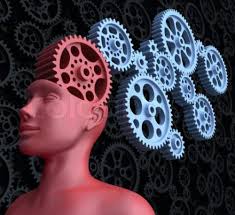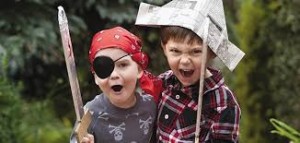Through which consciousness operates. Its propensity for event-forming is obvious even in young children. By obvious, I mean active, when fantasies occur involving activities far beyond the physical abilities as they thus far developed.
Children’s dreams are more intense than those of adults because the brain is practicing its event-forming activities. These must be developed before certain physical faculties can be activated. Infants play in their dreams, performing physical actions beyond their present physical capacities. While external stimuli are highly important, the inner stimuli of dream play are even more so.
Children practice using all of their senses in play-dreams, which then stimulate the senses themselves, and actually help ensure their coordination. In our terms, events are still plastic to young children, in that they have not as yet learned to apply our stringent structure. There is an interesting point connected with the necessity to coordinate the workings of the senses, in that before this process occurs there is no rigid placement of events. That placement is acquired. The uncoordinated child’s senses, for example, may actually hear words that will be spoken tomorrow, while seeing the person who will speak them today.
Focusing the senses in time and space is to some extent an acquired art, then — one that is of course necessary for precise physical manipulation. But before that focusing occurs, children, particularly in the dream state, enjoy an overall version of events that gradually becomes sharper and narrower in scope.
A certain amount of leeway in space and time lingers, for even biologically the child is innately equipped with a “forevision” that allows it some “unconscious” view of immediate future events that forewarn it, say, of danger. From this more plastic, looser experience, the child in dreams begins to choose more specific elements, and in so doing trains the senses themselves toward a more narrow sensitivity.
In periods of play the child actually often continues some games initiated quite naturally in the dream state. These include role-playing, and also games that quite simply involve physical muscular activity. All of this teaches a specification. In dreams the mind is free to play with events, and with their formation. The actualization of those events, however, requires certain practical circumstances. In play the children try out events initiated in the dream state, and “judge” these against the practical conditions. In such a way the child juggles probabilities, and also brings his physical structure precisely into line with a given niche of probability. Basically in dreaming the brain is not limited to physically encountered experience.
Mentally it can form an infinite number of events, and consciousness can take an infinite number of roles. The child may easily dream of being its own mother or father, sister or brother, the family dog, a fly, a soldier. In waking play the child will then try out those roles, and quickly see that they do not fit physical conditions.
Before a child has seen mountains it can dream of them. A knowledge of the planet’s environment is an unconscious portion of our heritage. We possess an unconscious environment, a given psychological world attuned to the physical one, and our learning takes place in it subjectively even as objectively we learn exterior manipulation.
The imagination is highly involved with event-forming. Children’s imaginations prevent them from being too limited by their parent’s world. Waking or dreaming, children “pretend.” In their pretending they exercise their consciousness in a particularly advantageous way. While accepting a given reality for themselves, they nevertheless reserve the right, so to speak, to experiment with other “secondary” states of being. To some extent they become what they are pretending to be, and in so doing they also increase their own knowledge and experience. Left alone, children would learn how to cope with animals by pretending to be animals, for example. Through experiencing the animals’ reactions, they would understand how to react themselves.
In play, particularly, children try on any conceivable situation for size. In the dream state adults and children alike do the same thing, and many dreams are indeed a kind of play. The brain itself is never satisfied with one version of an event, but will always use the imagination to form other versions in an activity quite as spontaneous as play. It also practices forming events as the muscles practice motion.
The brain seeks the richest form of an event. I am speaking specifically of the brain, as separated from the mind, to emphasize the point that these abilities are of creature-hood. The brain’s genius comes from the mind, which can be called the brain’s biophysical counterpart.






